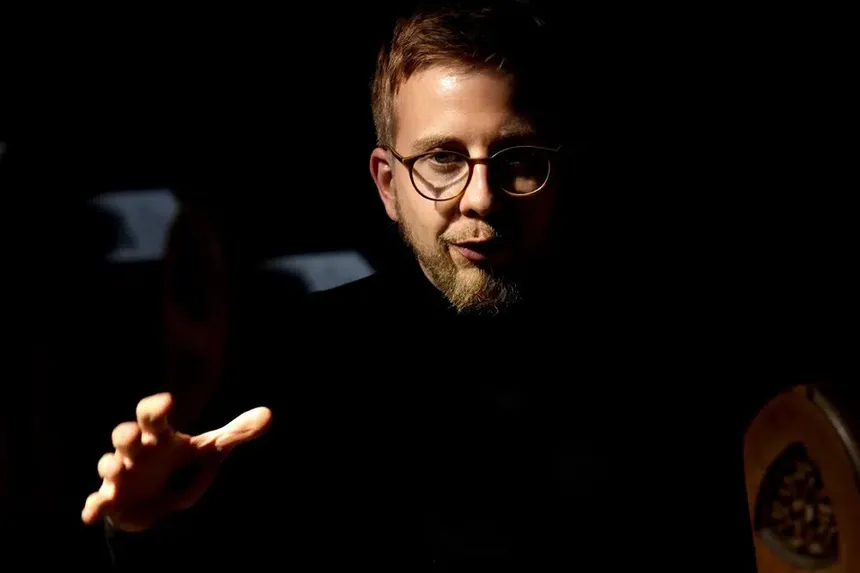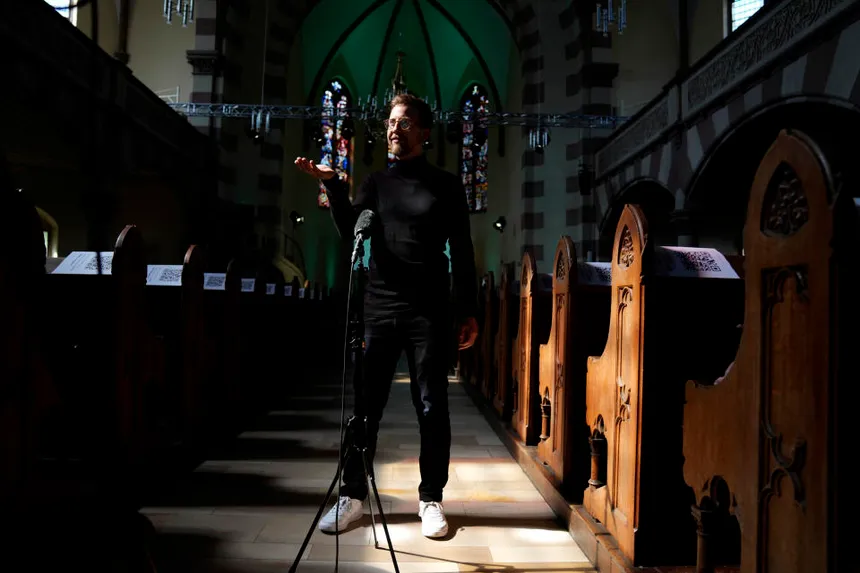In a groundbreaking experiment, a German church service was led almost entirely by artificial intelligence, with a chatbot named ChatGPT taking center stage. The service, which was created by ChatGPT and theologian Jonas Simmerlein, drew over 300 attendees to the 19th-century, neo-Gothic church in Nuremberg, Germany. The AI-generated sermon, prayers, and music were a major departure from traditional church services, sparking both excitement and skepticism among the congregation.
The AI chatbot, personified by four different avatars on the screen above the altar, preached about leaving the past behind, focusing on the challenges of the present, and overcoming fear of death. While some attendees were enthusiastic and videotaped the service, others looked on more critically, refusing to speak along loudly during The Lord’s Prayer. Heiderose Schmidt, a 54-year-old IT worker, found the service off-putting due to the chatbot’s monotone expression and fast-paced delivery, stating that there was “no heart and no soul.”
However, not everyone was critical of the AI-led service. Marc Jansen, a 31-year-old Lutheran pastor, brought a group of teenagers from his congregation and was positively surprised by the experiment. He noted that the language used by the AI was effective, although it was still a bit rough at times. Anna Puzio, a 28-year-old researcher on the ethics of technology from the University of Twente in the Netherlands, sees opportunities for AI to increase accessibility and inclusivity in religious services, but also notes the potential dangers of relying too heavily on AI.

Jonas Simmerlein (Via Jonas Simmerlein/Twitter)
Jonas Simmerlein, the theologian and philosopher who collaborated with ChatGPT, emphasized that his intention is not to replace religious leaders with artificial intelligence, but rather to help them with their everyday work in their congregations. He sees AI as a tool to be used in conjunction with human presence and interaction. Simmerlein noted that AI will increasingly take over many aspects of life, making it essential for people to learn how to deal with it.
The experimental church service also highlighted the limitations of implementing AI in church or religion. The chatbot was unable to respond to the laughter or reactions of the churchgoers, lacking the human touch and emotional connection that a traditional pastor would provide. Simmerlein acknowledged that AI cannot replace the role of a pastor, who is deeply embedded in the congregation and has a personal relationship with its members. The experiment shows that AI has its place, but it cannot fully replicate the emotional and spiritual experience of human interaction.
This pioneering experiment sparks important questions about the future of AI in religion and the role of artificial intelligence in shaping our spiritual experiences. As AI becomes increasingly integrated into our lives, it is essential to consider its potential impact on our relationships, communities, and institutions, including the church.











































